As parting gifts, we got bottles of ES's housemade ambré and rosé vermouths, as well as recipes to make them at home.
So finally, last weekend, we did.
Actually, the process started earlier, as we had to find wormwood and gentian, bitter orange and dried ginger. Thanks to Christina's (and Rico), Penzey's and the Modern Homebrew Emporium, we gathered everything.
The rest of the herbs came from our garden.
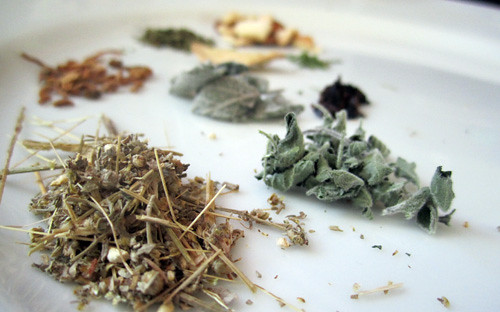
But back up a few days; before we were artfully arranging dried herbs on a plate, we were slicing 24 strawberries (I know, I know, they're out of season) and soaking them in brandy.
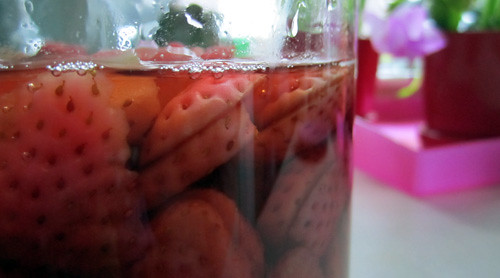
The herbs went into a pan with rosé wine and the whole mess was brought to a boil and left to cool.

Well, this was easy. What could possibly go wrong?
Oh.
The recipe called for 600g of sugar to be heated to a "soft ball stage." Did we know what that was? Could we figure it out? Did it have anything to do with using a keg for second base? Uh, no.
So we heated the sugar, stirring constantly and watching for some sign of chemical reaction that would signal its readiness. And then ... we basically guessed.
The recipe said to remove the sugar from the heat and add the brandy immediately, so we did.
There was a lot of loud hissing and cracking. And the sugar turned into an impenetrable igneous carapace.
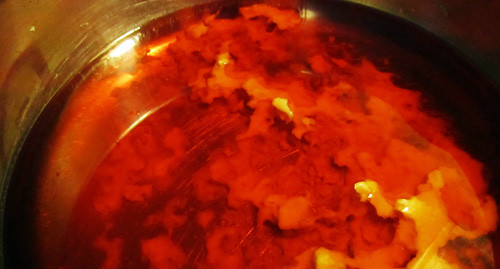
I know; those of you who work with sugar are rolling your eyes and sighing. What can I say?
We knew that the sugar would start to dissolve over time. So we left it alone.
After about an hour, I went back to check on its progress and found that enough had dissolved to make the strawberry-brandy quite syrupy. We didn't want the end result to be too sweet, so we decided to use what was there and add more sweetness later if necessary.
Back to business: adding ruby port, the strawberry-brandy syrup, and two more bottles of rosé to the wine-herb concoction.
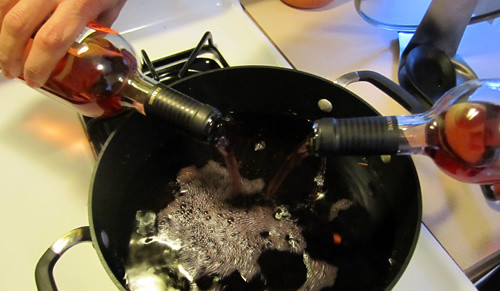
A little zest:
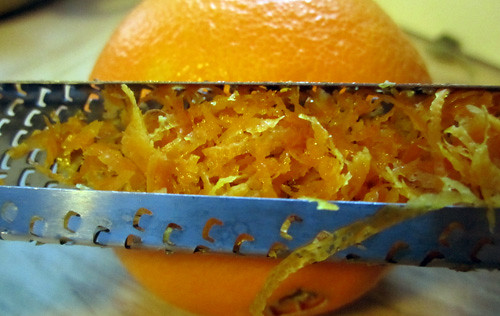
And we're done!
We strained the herbs out, bottled the liquid, and let it sit for a couple of days.
And then the taste test.
Verdict: It's a little less complex that I would have liked, but I don't know whether that's because it's still young or because (once again) we eyeballed the herb measurements. I might add more wormwood next time — but again, my taste runs to more bitter notes.
There's a definite strawberry nose, and the color is lovely.
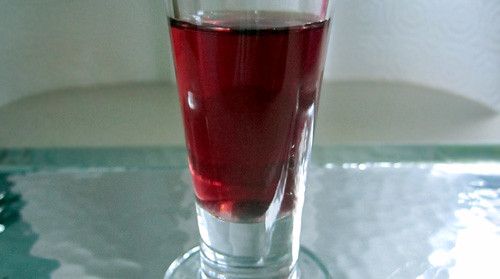
Next time, we'll try making the ambré vermouth. Anyone know where we can find orris root?
No comments:
Post a Comment